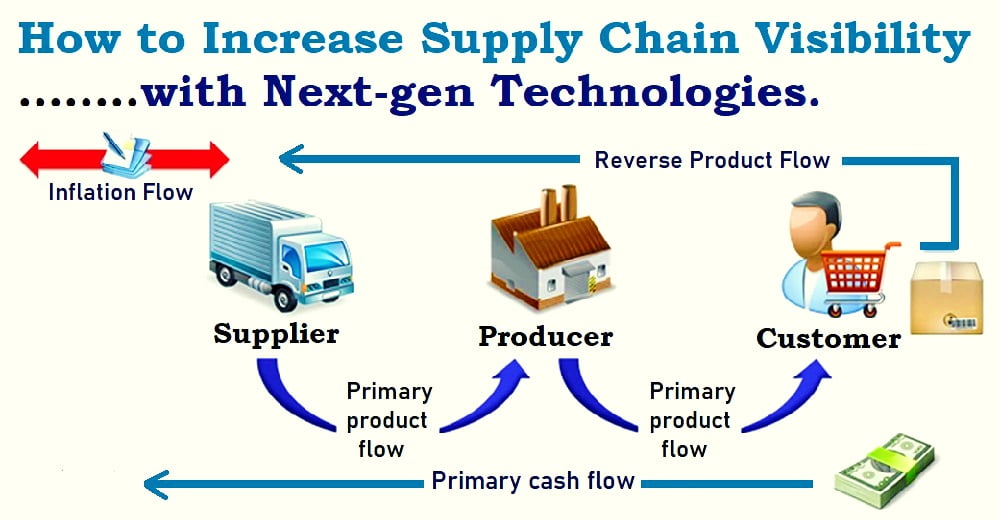“Consultant” is the ideal job description for many young careerists and professionals. If you want to start your career in consulting services, you need to have the 10 key consulting skills to ditch the corporate system and become a successful consultant.

10 Key Consulting Skills That Will Make You a Great Consultant
Starting an independent consulting business is one of the best ways to turn your depth of knowledge and years of experience into a business.
Counseling differs from coaching and is another way to help others with your expertise.
Consulting usually focuses on the business or groups as a client, although sometimes individuals look for advisors.
Every person is born with some unique qualities and skills, right? But most of the skills can be developed and improved through a lot of study, experimentation, and experience.
In this article, you will learn about 10 key consulting skills you need to have in order to become a great consultant.
Consulting Job Descriptions: What the Consultants Do?
A consultant is someone who professionally provides expert advice on a specific topic. He is appointed by companies so that they can accomplish a specific goal.
A consultant is an expert who advises others in a specific field or to fix specific problems. In an effort to improve outcomes in their life or business, people bring in one or more counselors to assess problems, offer solutions, and help implement needed changes.
Consultants are often required to align with a specific industry of their choice and ultimately become “experts” in that field.
Consultants evaluate an issue and prepare a solution with an emphasis on operations. In most cases, after the explanation and assistance in implementing the solution, the work of advisors takes place.
On the other hand, coaching is often done on an individual basis, with an emphasis on building clients’ personal strengths. Similar to counseling, a coach usually participates regularly (i.e. weekly) over a period of time until the client achieves their goals.
Starting a consulting business has its fair share of benefits. Consultants often have independence in choosing their projects and clients, allowing them to address issues and challenges that they find most interesting.
Profit margins can be high as well since they will provide the expertise that their customers do not actually have in-house, plus operating costs can be lower if they do not need additional personnel or additional equipment. But there are some costs that come with these benefits.
What Skills Do You Need to Become a Successful Consultant?
Consulting skills can be a powerful tool. The skills and traits you develop over the course of your career can help you in an industry in which your client and responsibilities can change often.
There are some specific requirements to becoming a consultant, but you will find that most of them are informal or can be accomplished with some training.
Good consultants demonstrate skills that provide specific information to help solve a problem or improve a business process.
Here are 10 key consulting skills and competencies needed to succeed in this field and become a great consultant:
1. Effective Communication Skills:
You will have to spend most of your time communicating with your customers. You will manage their expectations, persuade them to accept your solutions, and interact with many different individuals and departments. One misunderstanding can cause a lot of damage not just to your business, but to your customer’s business.
Presentation is the critical success criteria for any Consultant. If you want to be a successful consultant, you need good presentation skills. It is essential to demonstrate your attention to detail and high standards from an early stage.
For this reason, consultants need to have effective communication skills, especially the ability to adjust their communication style depending on the context and the medium.
2. Relationship Building Skills:
You are not the only expert in the market, there are many experts and consultants besides you, and therefore you need to have additional skills and features. This feature may be (technical) that is related to the essence of the work, and it may be personal, such as having a personal acquaintance with that person who is the owner of the project who is requesting your help and advice.
At the beginning of your journey in this field, you should work to form relationships with the medium in which you work and use social media in order to create a kind of variety and spread to your name. This means that relationships can be impersonal but also profitable.
Find valuable contacts and build solid relationships with others. Building your network means reaching out to other people whose work you find interesting. This includes those who may introduce you to potential clients.
For example, if you are looking to be a business intelligence consultant at a mid-sized law firm, rather than just searching for partner contacts at law firms, find out who they are most likely to contact.
This includes people involved in organizations of legal professionals, corporate event planners or editors of legal publications. They may not be your leads, but they know people who might be your potential customers, and they can also provide you with industry insights that you normally wouldn’t have access to.
Think about the people or organizations that your target customers interact with most often. Then, check if you can find and connect with some of these people who might really need your services.
3. Good Teamwork Skills:
If you want to become a successful consultant, you need good teamwork skills.
If you have good teamwork skills, you can be a good team player. Consulting firms look for individuals who thrive in positions of responsibility, have the intuition to lead a team, and are ready to take on a challenge.
Having a positive attitude makes a great team. A successful team is a team in which everyone’s unique skills and strengths help the team achieve a common goal in the most effective way.
Teamwork is based on the work and cooperation of a group with all its members in achieving results according to the work plan, and this work may be destined for success as well as failure.
The concept of teamwork does not always lead to success, and it does not always give the group that desired efficiency, because the matter relates to the individuals of each according to his reference, ideas, and aspirations.
The key here is the necessity for the individual to fuse into the group, along with other keys to the rapid success of collective action.
4. Self-Awareness Skills:
Self-awareness can be something as simple as communicating with others, then understanding your thoughts and feelings.
Self-awareness is an understanding of strengths and weaknesses, personality styles, and leadership styles. It shows that you have the ability to self-reflect and to develop in order to address areas of weakness.
Self-awareness is very important for those who want to become a consultant because he has to observe inner worlds, thoughts, and emotions, and focus more on productivity and on professional development.
If you’re talking about your experience leading a team, end your description with a look at what you will do differently next time, or what you learned from the previous experience.
5. Quantitative and Analytical Skills:
Quantitative and analytical skills are very important for a business consultant.
Quantitative skill is any skill that involves using or manipulating numbers in different forms. Statistics, algebra, and economics are areas where quantitative skills are essential, but quantitative tools appear in every discipline.
Analytical skills are the ability to find information, compile it, draw a vivid picture of it, and analyze it in detail.
Analytical skills can help solve a company’s problems and improve its overall productivity and success.
Analytical skills greatly affect your success when you go out into the realm of life, and the person’s reliance on analytical skills – not on emotions and desires – to conquer challenges, no matter how urgent or complex the situation is that brings him closer to achieving success.
6. Critical Thinking and Problem-Solving Skills:
Creativity is a top priority in areas such as business, art, graphic design, writing, etc. Creative thinking encourages brainstorming and listening to ideas from all kinds of people and gives people ideas that go beyond the standard and commonly accepted ways of doing business in the industry.
Critical thinking is a useful tool in solving problems and making decisions in various fields, whether related to education or work. Therefore, critical thinking is of great importance in the application of direct dealing with problems.
The solution to various problems can only be achieved through thinking of its different types.
Depending on the type of consulting services you provide, you may be responsible for analyzing business practices, resolving disputes between employees, and providing additional guidance or expertise they need.
You need to listen carefully to the concerns that employees bring to you and react quickly and thoughtfully to help suggest solutions. So, acquire these most valuable skills.
7. Soft Skills:
Soft skills are a combination of several skills that enable you to fit in at a workplace.
Soft skills include your personality, attitudes, manners, mindsets, career attributes, flexibility, motivation, and social and emotional intelligence.
It is not enough to have strong technical and operational skills to become an excellent consultant. Soft skills are essential for you to excel in a consulting firm.
Soft skills are so important that this is often the reason why company owners decide whether to keep or promote an employee.
Other personal skills are needed to manage consulting business and work with your clients, including negotiation, cooperation, and organization. You will use these skills regularly throughout your career.
8. Knowledge of Business Practices:
Business knowledge is an important strategic asset that shapes and influences all activities in and around your business.
Business knowledge is the sum of the skills, experiences, abilities and expert insights that you collectively create and draw upon in your business.
Business practices are the ways you attempt to do so in the most cost-effective way. Even if you plan to work on projects that do not directly affect business operations, understanding how to operate a typical business will allow you to navigate the needs of your clients more thoroughly.
You will understand how the different departments work with one another, how hierarchies typically interact and anticipate any potential issues that will interfere with your efforts.
9. Valuable Work Experience:
Since you will be employing your skills, there must be something in your background and experience that demonstrates the value you will provide.
The company generally looks for an individual who has already tried out his skills in a relevant work experience placement. Ideally, this indicates an interest in the consulting world, as well as a few ideas about what to look for in the company.
For example, if you are looking to be a diversity consultant for a company, do you have a background in sociology or anthropology, or at the very least, do you have experience working on diversity programs?
If you are planning to work as a sales consultant, are you leading a sales team, and do you have the numbers to show the difference you have made? Have you written a book on the topic you are helping your clients with?
Although you don’t necessarily need a specific degree for most consulting jobs, you do need at least some evidence that you have the expertise to contribute something of value to your clients.
10. Relevant Certificates:
Some consulting firms require formal credentials, either as a condition or as an optional means of demonstrating their expertise. For example, management consultants can obtain the certified management consultant qualification if they meet criteria such as having at least five client recommendations, a college degree, and passing some written and oral exams.
Academic success shows two key attributes in a consultant; the ability to learn and the ability to graft. Good academic history is an essential factor for some senior consulting roles.
As you plan your consulting business, make a note of the official credentials you’ll need when setting up a store.
Start Your Consulting Business Smartly
The consulting business can be challenging, intimidating, and a highly competitive project, the rewards are attractive to those who are able to do the work.
If you find that consulting is right for you and that you will be able to thrive with complete independence, then all of the effort you put into starting a consulting business is worth it.
Read Also: 8 Ways to Promote Consulting Business



